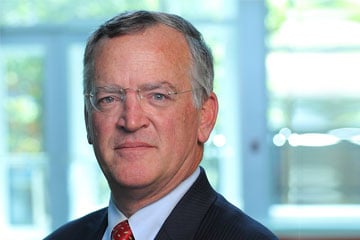
Cox & Palmer’s Halifax Ocean Innovation Team has announced its newest member — an academic, entrepreneur and researcher.

Cox & Palmer’s Halifax Ocean Innovation Team has announced its newest member — an academic, entrepreneur and researcher. In his new role with the Atlantic law firm, Dr. Marlon Lewis will be tasked with bringing a non-legal perspective to issues and opportunities. “They recognized they need a more well-rounded group of people,” says Lewis.
A professor emeritus at Dalhousie University, Lewis is the former chairman of Dal’s Department of Oceanography and the former senior scientist at Satlantic LP, a manufacturing firm. His diverse background, he says, while not legal expertise, gives the firm context for its ocean-related files and adds to the ability to do work in this area. “It’s farsighted.”
Not being a lawyer gives the team an edge, he adds. “I look at things from a different lens. It’s an advantage.”
The newly expanded team is in the early days of its work and a comprehensive strategy is being developed. “We’re looking beyond legal approaches to give real value to clients,” says Lewis. He notes, for example, that defence contracts contain requirements outside of strictly defence-related work. This might include requirements to ensure regional industrial benefits.
The interest in oceans-related work, including legal services, has escalated since the federal government signed an agreement last November to invest almost $153 million, matched dollar for dollar by the private sector, in the Atlantic Canada-based Ocean Supercluster. The goal of this new group of businesses, post-secondary institutions and non-profits is to accelerate innovation and sustainable economic growth from Canada’s oceans. Legal services will be central to that growth.
According to the federal department of Innovation, Science and Economic Development, the supercluster will undertake activities to harness emerging technologies to strengthen Canada’s ocean industries such as marine renewable energy, fisheries, oil and gas and shipbuilding. It projects the supercluster will create more than 3,000 jobs and add more than $14 billion to Canada’s economy over 10 years.
“It is a broad program that is designed to carry out pre-competitive research and development,” says Lewis. “It’s off to the races.”